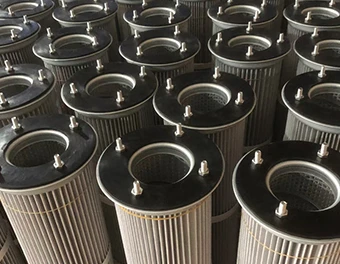 Tel:
+8615930870079
Tel:
+8615930870079
dec . 05, 2024 10:51 Back to list
Enhancing Air Quality in Turbines with Advanced Filtration Technology
The Importance of Air Filters in Turbines
Air filters play a crucial role in the operation and longevity of turbines, which are fundamental components in various industries, including power generation, aviation, and manufacturing. Turbines are designed to convert energy from one form to another, and their performance is directly linked to the quality of air that enters their systems. This article explores the significance of air filters in turbines, discussing their functions, types, maintenance, and future trends.
Functions of Air Filters in Turbines
Air filters serve several essential functions within turbine systems. Firstly, they are designed to remove contaminants from the incoming air. These contaminants may include dust, dirt, pollen, and other particles that can lead to wear and tear on the turbine components. Without proper filtration, these particulates can cause significant damage, reduce efficiency, and increase maintenance costs. By preventing contaminants from entering the turbine, air filters help maintain optimal performance and extend the lifespan of the equipment.
Secondly, air filters contribute to the overall efficiency of the turbine system. Clean air ensures that the turbine can operate at its rated capacity, maximizing energy conversion and minimizing fuel consumption. When air filters are clogged or dirty, airflow can become restricted, resulting in reduced power output and increased operational costs. Therefore, the efficiency of air filtration is closely linked to the overall efficiency of turbine operation.
Types of Air Filters
There are various types of air filters used in turbine applications, each designed for specific environments and operational requirements. Some of the most common types include
1. Mechanical Filters These filters use a physical barrier, such as a mesh or fibrous material, to capture airborne particles. They are effective in pre-filtering larger particles, making them suitable for various industrial applications.
2. HEPA Filters High-Efficiency Particulate Air (HEPA) filters are capable of trapping extremely small particles and are often used in environments that require stringent air quality standards. While they offer superior filtration, they may also introduce pressure drops that need to be carefully managed in turbine systems.
air filter turbine

3. Electrostatic Filters These filters utilize an electric charge to attract and capture particles from the air. They are known for their high efficiency and durability, making them an increasingly popular choice for turbine applications.
4. Carbon Filters These are designed to remove odors and specific gaseous contaminants. While not as common for turbines, they can be essential in certain applications where air quality is critical.
Maintenance of Air Filters
Proper maintenance of air filters is essential for ensuring their efficiency and effectiveness in turbine applications. Regular inspections should be conducted to check for signs of wear, damage, or clogging. Depending on the type of filter used and the operating environment of the turbine, replacement or cleaning may be necessary.
For instance, mechanical filters may need to be cleaned or replaced more frequently in dusty environments, while HEPA filters might have longer replacement intervals in cleaner surroundings. Implementing a robust maintenance schedule not only enhances turbine performance but also helps to avoid costly downtime and repairs.
Future Trends
As the demand for cleaner energy sources continues to grow, the importance of effective air filtration systems in turbines will likely increase. Innovations in filter technology, such as advanced materials and smart monitoring systems, are emerging to enhance filtration efficiency and reduce maintenance needs. Additionally, the integration of artificial intelligence in monitoring air quality and filter performance could revolutionize how turbine operations manage filtration systems, leading to more reliable and efficient energy production.
In conclusion, air filters are a critical component in the functionality and efficiency of turbines across various industries. Their ability to ensure clean air intake not only protects turbine components but also maximizes operational efficiency. As technology advances, the methods and materials used in air filtration are expected to evolve, driving down costs and improving performance. A focus on proper maintenance and an understanding of the types of filters available will be key to optimizing turbine performance in the years to come. Investing in high-quality air filtration systems is not just a matter of efficiency; it is a proactive approach to ensuring sustainable and reliable energy production.
-
Types and Applications of Air Filtration CartridgesNewsJul.28,2025
-
The Role of Gas Turbine FiltersNewsJul.28,2025
-
Mastering Air Filter Cartridge UseNewsJul.28,2025
-
Advanced Turbine Filters for Modern Gas TurbinesNewsJul.28,2025
-
Cellulose Air Filter Cartridge Advantages in Dust FiltrationNewsJul.28,2025
-
Cellulose Filters for Air Particle ReductionNewsJul.28,2025

 Email:
Email:





